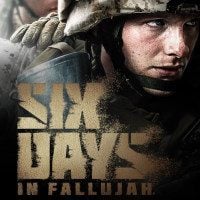Why games avoid contemporary armed conflicts – political corectness or industry's immaturity?
Video games allow us to experience, whether truthfully or not, frontlines of the past and the future alike. But why are there so few video games dealing with present-day wars? Why do developers seem to consistently avoid this subject?
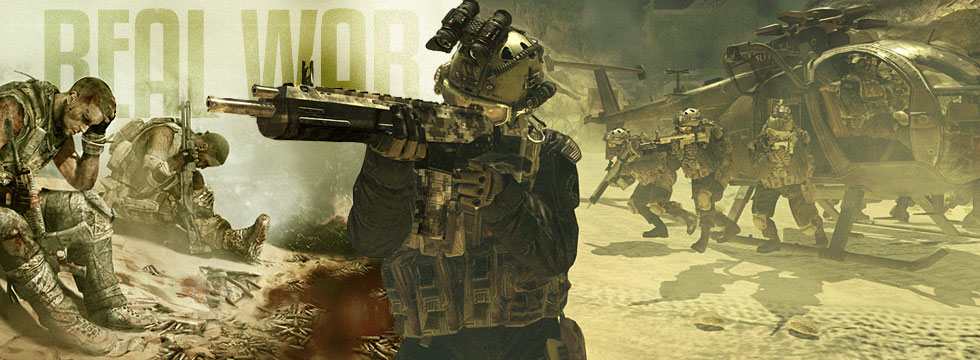
Contrary to what the extremely pessimistic tone of almost every media outlet in existence might suggest, we live in one of the safest periods in the history of mankind. The average citizen of one of the more developed countries doesn't need to fear things like epidemics, armed raid parties from neighboring states or widespread crime. Not everywhere things are so peachy though. Currently, there are dozens of conflicts taking place: both large-scale, claiming thousands of victims every year, such as the Syrian civil war, which has been going on for five years now and has resulted in a humanitarian disaster, as well as smaller, regional skirmishes with guerrillas in Angola, Democratic Republic of Congo or Iran. Now, while literature, cinema or television are trying to address these topics, one way or another, the creators of video games are reluctant to delve too deep into the theme of present-day wars.
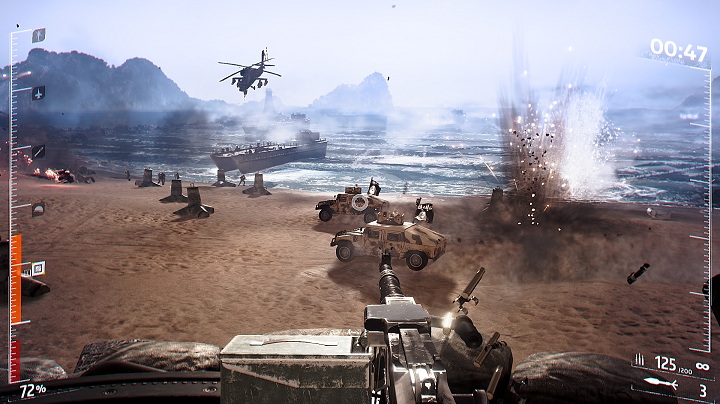
Let's take a brief look at other media. Bookstores are full of publications, especially documentaries, about modern Iraq, Afghanistan, or Syria. The silver screen, in turn, has seen a good deal of features in the last few years, both taking place in the present day – usually action movies such as Lone Survivor, but also intelligent, down-to-earth political dramas, such as some works by Kathryn Bigelow. There is the controversial award-winning political thriller Homeland – an ongoing TV series; there are also plans to adapt Black Flags – the bestselling book that focuses on the formation and rise of the Islamic State. Meanwhile, video games appear to be firmly divided between fictional futuristic settings and the slowly fading passion for World War II. From time to time some developer re-images the US involvement in Vietnam, the next Battlefield will take us to the battlefields of World War I – while the modern real-life conflicts are usually nowhere to be found. Which does not mean that no developer dared to wrestle with this theme. Of course they did. Unfortunately, their projects usually ended up badly.
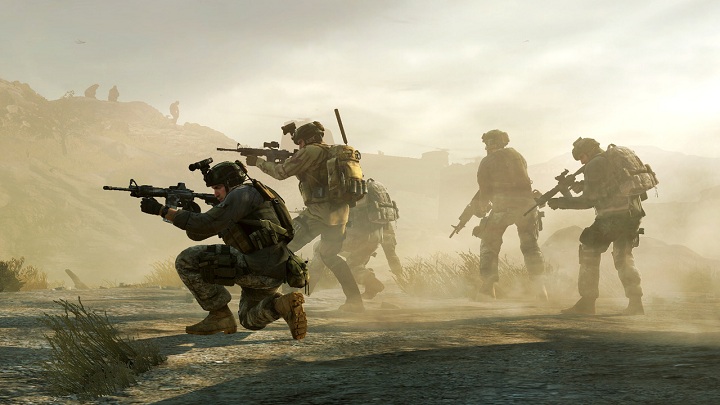
Let's recall, for example, the 2010 Medal of Honor – a title that allowed the player to experience operations based on real events from the war in Afghanistan. While in terms of the gameplay the work from studio Danger Close has proved to be quite a solid FPS, what gained the most media attention was not the game itself but the controversy surrounding it. The problematic matter was the option to play as the Taliban in the game's multiplayer mode. The devs defended their game by pointing out that the setting demanded it and that's just how it is. "Most of us have been doing this since we were seven – if someone's the cop, someone's gotta be the robber, someone's gotta be the pirate and someone's gotta be the alien", said EA's senior PR manager. "In Medal of Honor multiplayer, someone's gotta be the Taliban."
The public, however, remained unconvinced; the then UK Defense Secretary called for a boycott of this game, calling it "tasteless" and "un-British", and finding it "shocking that someone would think it acceptable to recreate the acts of the Taliban against British soldiers". His Canadian counterpart shared this view. Eventually, Danger Close was forced to replace the name "Taliban" by neutral "Opposing Force" (OpFor in short), but even then the game was never authorized for sale in US military bases out of respect for the soldiers involved in the conflict. For the developers, 2010's Medal of Honor turned out to be the penultimate production they have created – after the cold reception of the game's 2012 continuation, the Los Angeles-based team was disbanded, and the cult FPS brand itself – indefinitely shelved by its publisher.
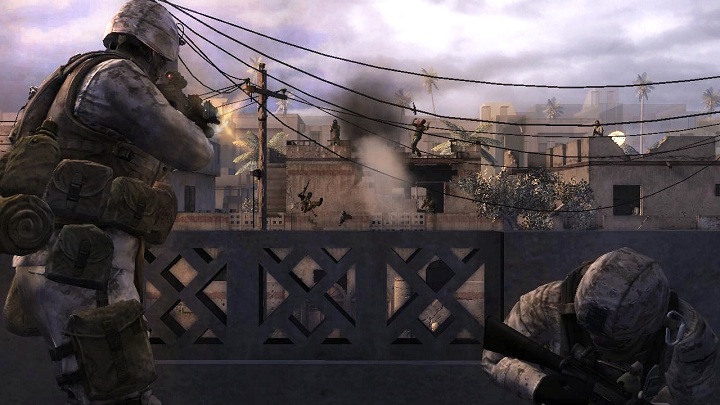
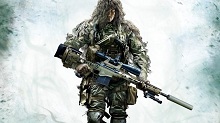
At the moment it is difficult to find any major production that would take on the subject of modern, ongoing armed warfare. There is hope, however, that Polish Sniper: Ghost Warrior 3 will decide to stir things around the Russo-Georgian war of 2008 – one of our editors has tested a portion the game that sent us specifically to Georgia, and it would be strange for it to completely omit the issue of Abkhazia and South Ossetia. We've tried to contact CI Games for a comment – to no avail unfortunately; apparently the team doesn't want to reveal any plot points of their latest work.
An even worse fate has befallen Six Days in Fallujah. The title, created by Atomic Games, was to depict the true events of the operation Phantom Fury, the clash between the US forces and Iraqi insurgents that took place in November 2004 in the city of Fallujah. According to the developers themselves, they have started working on a game that would address this subject upon being asked to do so by the soldiers who took part in the fighting. It soon turned out that the public's disposition towards the idea is less than favorable. It didn't help much that the developers have conducted interviews with historians, military commanders, Iraqi militants as well as members of the Marine Corps, and even described their production as a survival horror precisely because of the emphasis on the psychological aspects of the battle. Despite their efforts, veterans, high-ranking officials and pacifist organizations have formed a united front against Six Days in Fallujah, claiming that making a game about the traumatic events that took place less than five years earlier demonstrates a lack of sensitivity and respect for the people who died during the operation. Apparently frightened by the negative feedback, the Konami company, which was to publish the work of Atomic Games, withdrew from the deal in less than a month (!) after the game's official announcement. As for Atomic Games, it hasn’t created any production for the next half a decade.
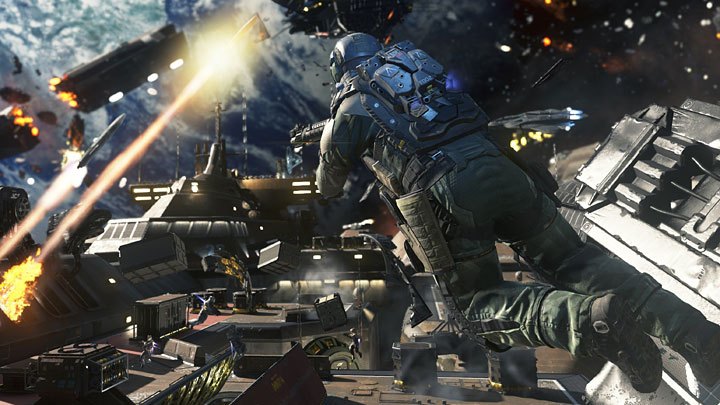
It is hard to be surprised at developers who are reluctant to spend big money on games set in real-life settings with real-life factions. If there is a risk that the reception of the title – regardless of its quality – will be stained with controversy, why even take the risk? It is much easier to write a script with a reasonably designed fictional conflict that will not meet with indignation from veterans. That's what the biggest brands are doing right now: after all, the action of Battlefield 3 takes place mostly in the Middle East, while in Modern Warfare 2 we visit Afghanistan, except it's always within the framework of a war invented by the writers. But even independent developers prefer not to stir the hornet's nest – though of course there are isolated cases that draw boldly from ongoing conflicts, such as the Polish game IS Defense, in which we face the invasion of the militants of the Islamic State. In this case, however, the controversy served as the fuel for marketing efforts, because the game itself had little to offer – it's a simplistic shooter, in which our only goal is to raze subsequent waves of enemies.
The reasons for this may be found in the perception of interactive entertainment: although year after year the industry proves that it is perfectly able to deal with serious themes, many are still convinced that video games are for children (or immature adults). "Let’s not forget we are talking about games here“, reminds Timo Ullmann from Yager Development. "We are a very young medium and we are still learning". Timo and his team have the 2012's Spec Ops: The Line under their belt – the title that was focused not on delivering the most spectacular action scenes, but the tragic story about war and what it does to the people affected by it and fighting in it. But even such a serious production shied away from using a real-life narrative setting. Ullmann explains that the developers did not want to give up the complete narrative freedom they had at their disposal. "We wanted to be able to tell a story that let us explore some universal questions like the ambivalence of right and wrong or how good intentions can have horrible consequences”, he said. “We also decided to stay away from already known conflicts or backdrops to avoid clichés. If we had placed the game for instance in Iraq or Afghanistan, the perception would have been different." As we can see, fictional wars don’t limit the creativity of writers and gameplay designers alike.
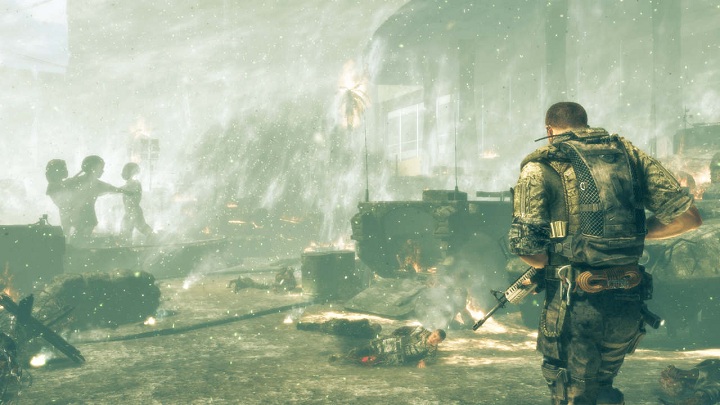
As shown by the current war with the Islamic State in Syria, not much depends on a single soldier. While the Kurdish militia was able to regain cities, for example Kobanî, using more traditional means, the greatest losses to the jihadists were incurred due to raids by Syrian government forces, Americans and Russians. Some of them are executed not by classic attack aircraft, but by unmanned drones – they were the ones to catch the infamous ISIS executioner "Jihadi John". How to realistically recreate the specific character of such type of warfare in a video game without boring the player to death? It's a tough nut to crack, especially for the FPS genre. In strategy games the solution to the problem would be a bit simpler, but it's still hard to feel the thrill when you realize that the only penalty for the failure of the whole operation will be the loss of a few drones...
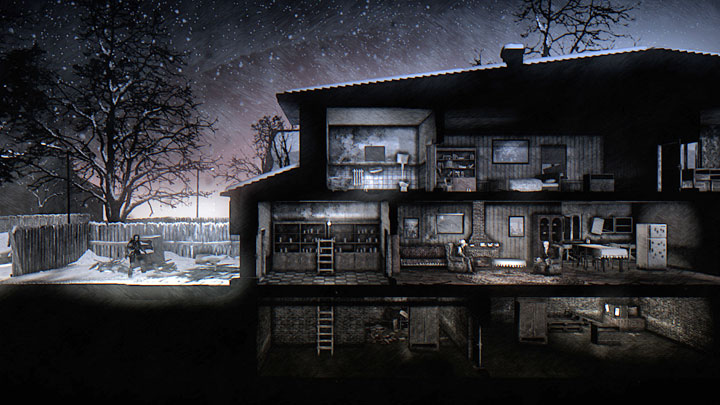

Interestingly, similar doubts as the ones concerning the option to play as the Taliban somehow never arise when we can step into the shoes of Nazis. For example, in the earlier iterations of Call of Duty one of the sides to the conflict was called "Axis Powers," displaying the swastika and the Celtic cross on the flags. Somehow nobody raised an eyebrow over the fact that some players had to fight for the regime that claimed millions of innocent lives and whose impact can still be felt in the history of Europe. It’s quite the question why we never hear any louder protests against this state of affairs.
Of course, such issues are just the tip of the iceberg. Video games set during ongoing real-life wars, focused by definition on the rivalry between two existing parties, could fuel the existing resentments. Which, by the way, was one of reasons why the option to play as the Taliban was ultimately removed from Medal of Honor: what if people with extremist views had fun shooting virtual American or British soldiers? And as much as the idea of jihadists with gamepads in hand, laughing ominously at each headshot they score online looks highly unlikely at best – and simply ridiculous at worst – the reasoning behind all this is certainly not unfounded. Let's take This War of Mine, for an example, the production in which we play as civilians trapped in a war-ravaged city under siege. It's hard not to guess that the title created by the Poles from 11 bit studios was inspired by the Yugoslav Wars, a series of conflicts that took place in the 90s. The dev, however, didn't simply put the player in the role of Bosniaks, Serbs or Croats. "The inhabitants of those regions still harbor – and understandably – a grudge against each other for what happened during the war", explains one of the game’s developers, Pawel Miechowski, "Instead of focusing on the fact that the civilians are the biggest victims, regardless of their background, nationality or religion, they are still arguing the reasons why the tragedy that played out in Sarajevo happened in the first place". In addition, by focusing on the general theme, and not on the political and historical background, the developer can expand the game's target audience. "Thus, we’ve made a universal game to which anyone can relate, including people from places like South America, who would normally have no interest in East-European conflicts”.
Although the developers don’t want to admit it, one of the main reasons for steering clear of actual modern conflicts is also without a doubt the fact that it would force the creators to pick a side. In the case of history that was written decades ago things are much simpler: the Nazis or the Communists were the bad guys, and the good guys were the Allies, usually Americans. Ongoing wars, however, are painted almost exclusively with shades of gray. Today the United States are fighting the Taliban, but they are reluctant to admit that during the Cold War they supported this faction against the Soviets. The invasion on Iraq was said to be justified by things like the possibility of Saddam Hussein having weapons of mass destruction – except no evidence was found that would suggest such weapons were there in the first place. Can you imagine the scale of controversy that the infamous scene of using white phosphorus in Spec Ops: The Line would spur if Yager Developments had set the game not in a fictional version of Dubai, but in Fallujah, where the Americans actually used this weapon, and the victims were not only rebels, but civilians as well? According to the public opinion, video games are not worthy to be treated on par with cinema or literature; the fact that developers address heavy political topics is somewhat frowned upon, because video games are "just for fun".
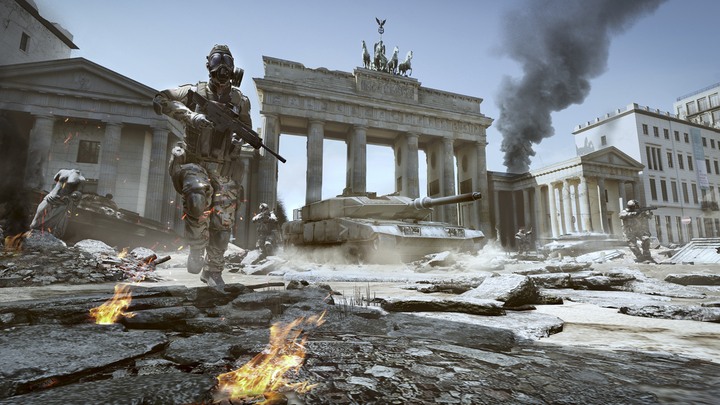
But the good news is that digital entertainment starts to demand the right to tackle certain subjects. Every year we see new titles that deal with truly mature issues. Papers, Please wrestled with discrimination and totalitarianism, the upcoming Need To Know and Orwell will focus on the problem of loss of privacy and surveillance. And if developers want to and can successfully take up such issues, it is probably a matter of time before they start releasing games dealing with such important topics as ongoing armed conflicts. "Interactive entertainment is also a means of telling a story, which, however, needed time to mature and develop appropriate measures to enable presentation of difficult topics", says Miechowski from 11 bit studios. "Games do not have to focus on action or comedy; they can also tell a tragic or dramatic story. It's only a matter of time before they begin dealing with these things as good as movies do". And since even game developers themselves suggest it, then who knows? Perhaps another production in the vein of This War of Mine or Spec Ops: The Line will take place in present-day Kabul or Aleppo...

